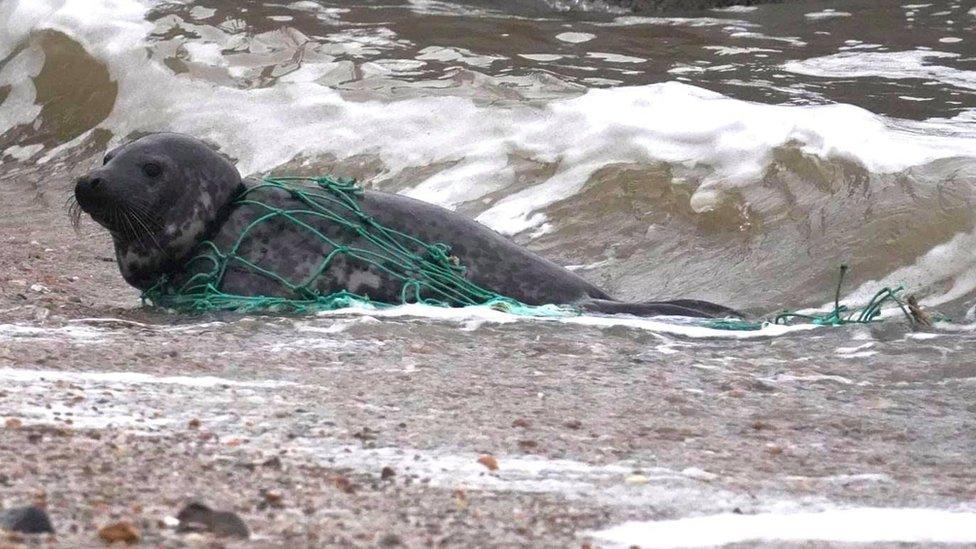Marine wildlife warning as UK whale sightings rise
- Published
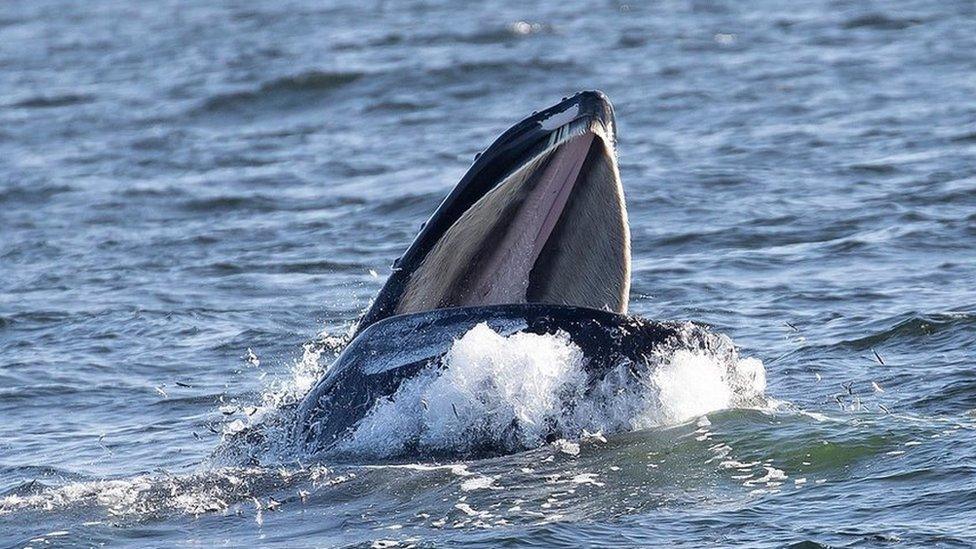
This whale was photographed off the Isles of Scilly
An increase in sightings of humpback whales in UK waters is a positive sign of the species' recovery from commercial whaling, experts have said.
The Wildlife Trusts group said there had also been "surprising sightings" of orcas and dolphins during 2021.
However, the charity warned that human activity was disrupting marine life.
It said more than 170 cetaceans were stranded in Cornwall alone in the last 12 months along with 247 seals - many injured by fishing activity.
Nick the bottlenose dolphin, admired by swimmers in Cornwall, washed up in Ireland with injuries consistent with propeller damage and a minke whale appeared in the Thames but had to be put down after its condition deteriorated.
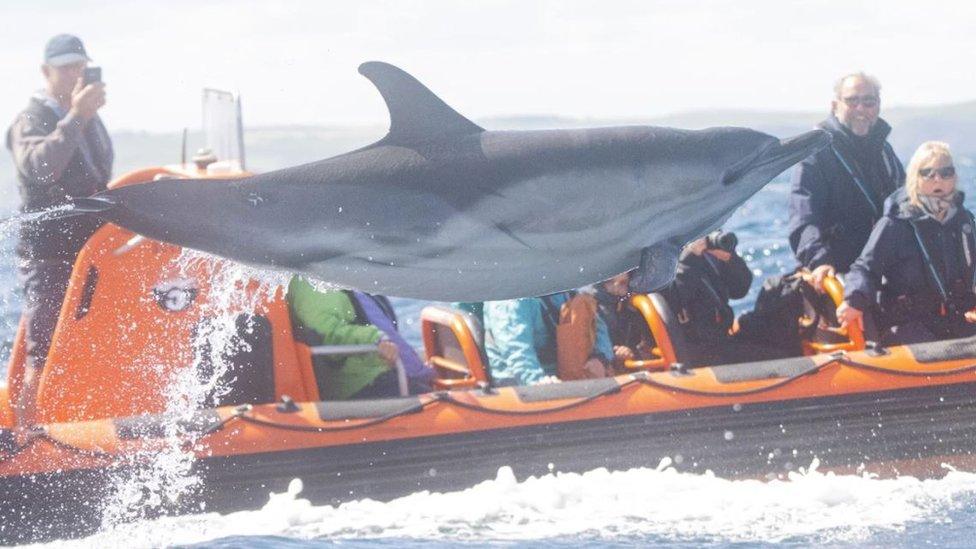
This common dolphin leapt from the sea near Padstow in Cornwall
Daniele Clifford, marine conservation officer for The Wildlife Trusts, said the noise from wind farms can disorientate some species.
She added: "We need to think carefully about all marine development in the future.
"Far too many marine creatures are unnecessarily killed due to unsustainable fishing practices, with lost and discarded fishing gear also causing havoc - especially for seals, dolphins and other marine mammals."
Humpback whales seen in Scotland and off Cornwall
The Cornwall Wildlife Trust said it had recorded 17 sightings of humpback whales - once an extremely rare sight in UK waters.
It brings the total to 75 sightings since 2019, with the species thought to be chasing shoals of sardines now present in the region's waters.
The charity said it showed numbers were recovering after bans on commercial whaling.
Humpbacks were also seen off the Isles of Scilly, the Firth of Forth and off Shetland.
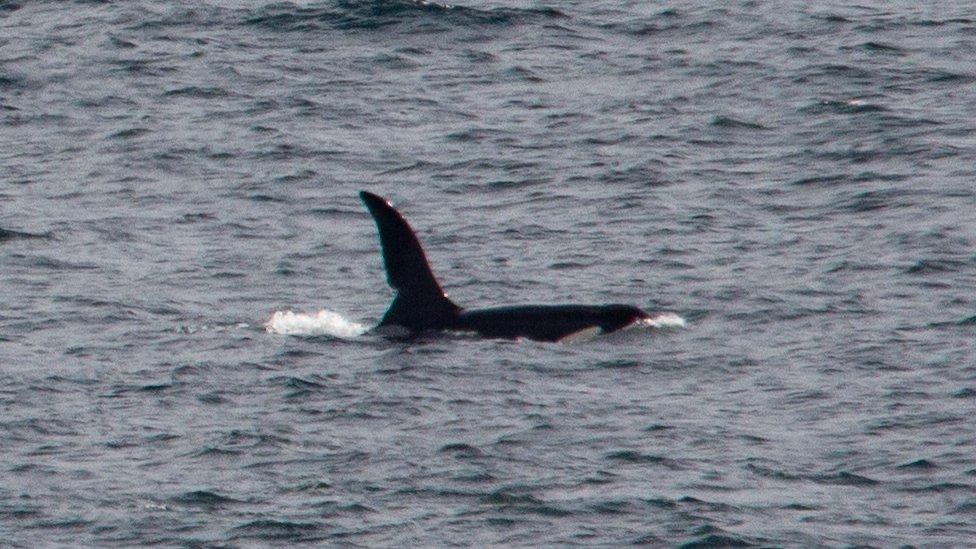
Orcas were seen in Scotland and Cornwall
Two orcas from the Hebrides were spotted near the Minnack Theatre in Cornwall, in the most southerly sighting of the west coast community in more than 50 years.
They also put in an appearance off the coast of Dover, in Kent.
White-beaked dolphins were seen off Essex, far from their normal subarctic waters, while Moray Firth bottlenose dolphins were recorded on the south coast for the first time.
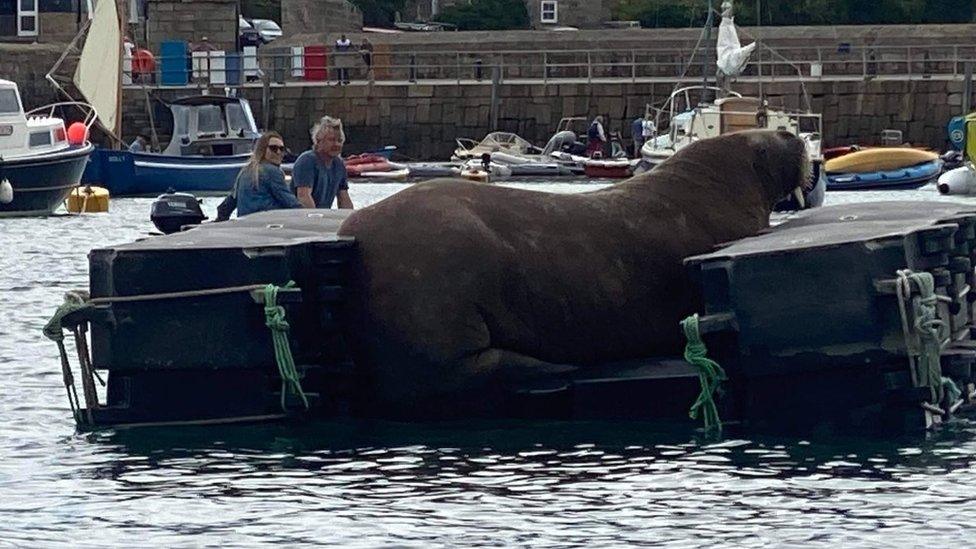
Wally the Walrus was given a pontoon to create a "safe space" for him
The Wildlife Trust of South and West Wales said it witnessed a seal pup being abandoned by its mother after people were seen taking selfies with the youngster.
An Arctic walrus nicknamed Wally was tracked as he travelled around the UK.
Lissa Batey, head of marine conservation for The Wildlife Trusts, said: "It's been a fantastic year for marine megafauna sightings, particularly in the south west, but it's clear that our oceans are under immense pressure from fishing, development, pollution, climate change and recreation.
"All these issues are having a huge impact on life at sea."

Follow BBC News South West on Twitter, external, Facebook, external and Instagram, external. Send your story ideas to spotlight@bbc.co.uk, external.
Related topics
- Published8 July 2021
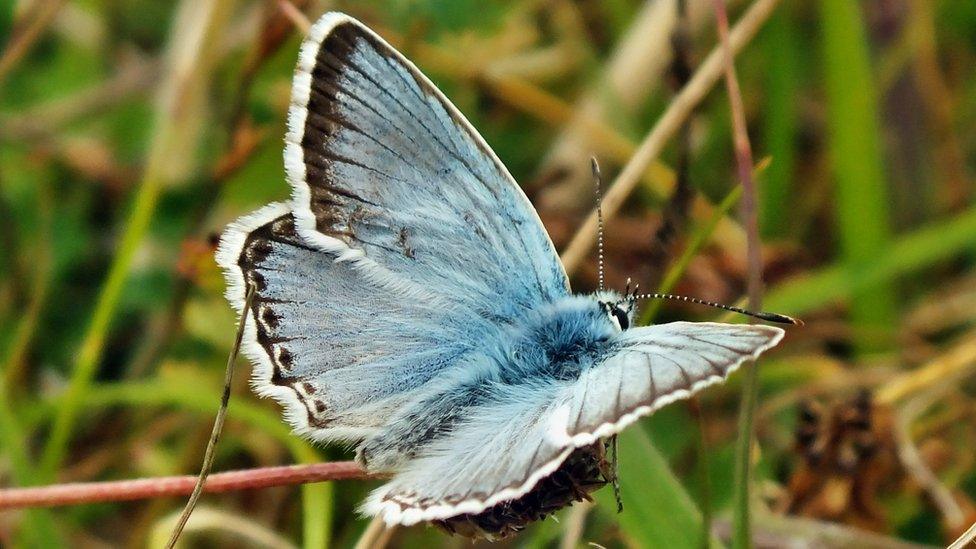
- Published6 May 2021
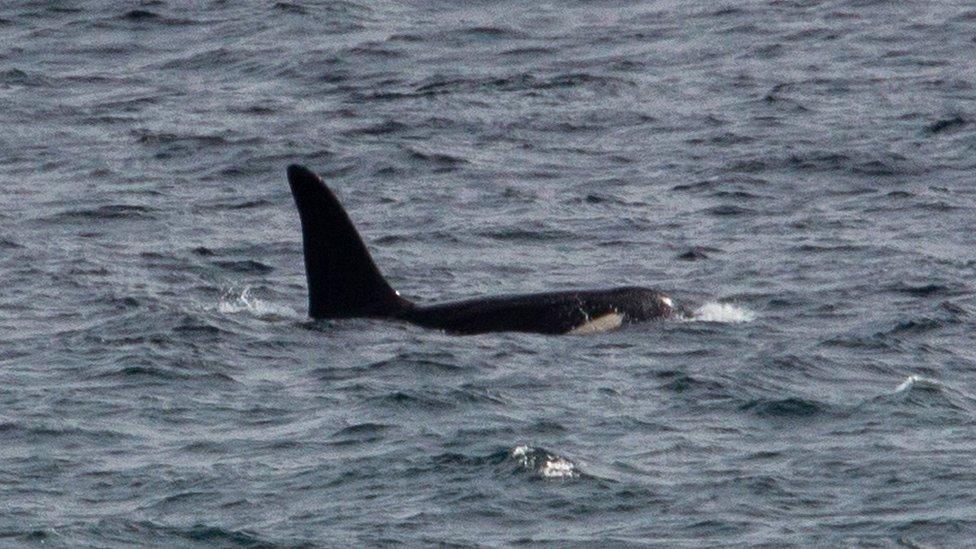
- Published1 December 2020
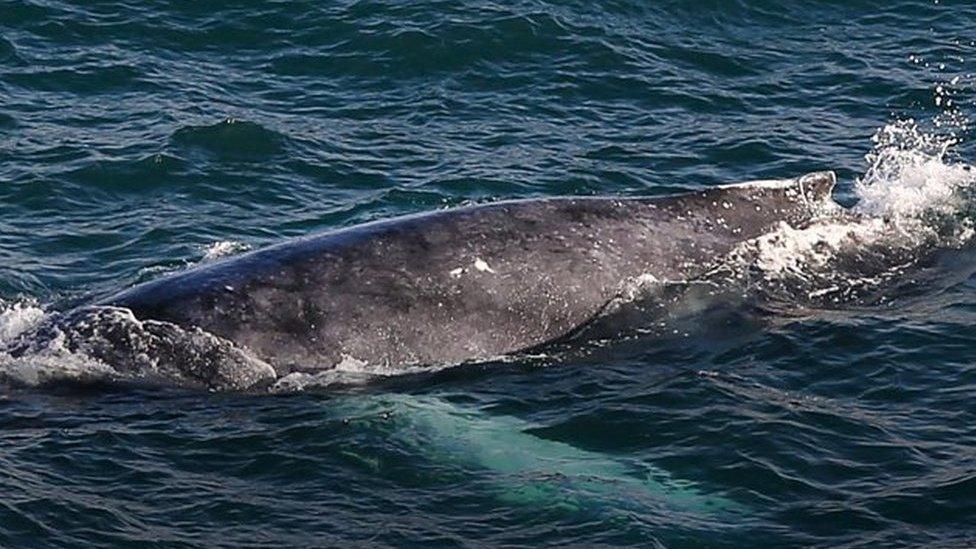
- Published6 February 2021
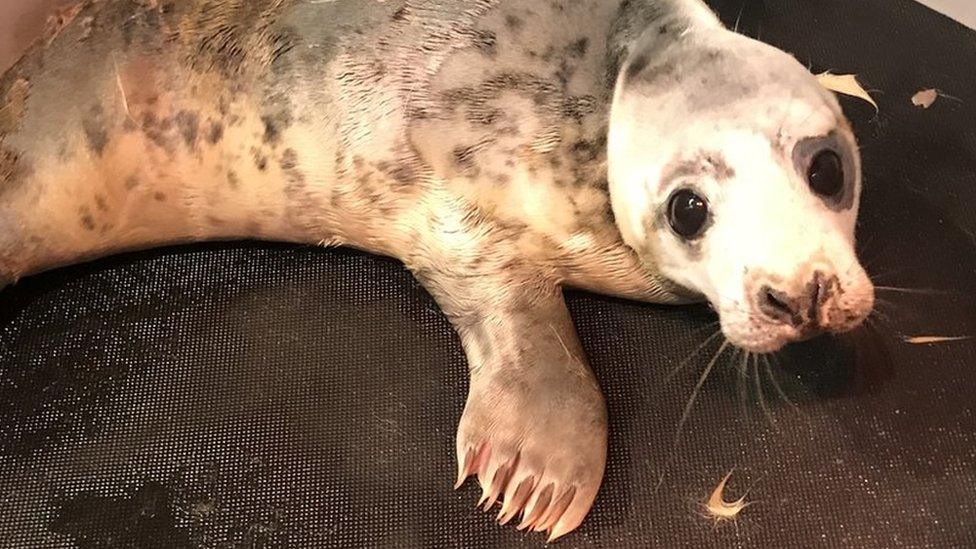
- Published24 January 2021
